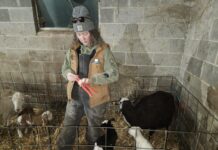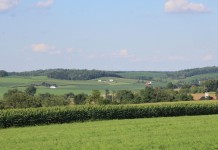COLUMBUS – Although America’s attention is focused on Iraq, agriculture should be keeping a close eye on the developments with North Korea.
Matt Roberts, Ohio State University agricultural economist, said a war with Iraq may cause little, if any, economic impacts, but a conflict with North Korea could cause a dramatic disruption in agricultural trade and market prices.
Long-term view. “A potential war with Iraq is simply creating short-term financial uncertainty, which may result in higher interest rates if tensions continue,” said Roberts.
“Any long-term ramifications may result in the slow-down of imports and exports due to heightened security, and in what we call reputation effects – America’s standing in the international community when it comes time for other countries to make American purchases.”
A war with North Korea could have a longer-lasting effect, said Roberts.
South Korea is a close trading partner with the United States said Roberts, and any attack “would probably involve the near leveling of Seoul (the South Korean capital).”
“The economic disruptions would be immense,” he added. “We would feel that in our agricultural community. The lesser demand for meat would reduce the demand for feed grains. In other words, a decrease in exports translates into a decrease in grain prices.”
Rural impact. Although any conflict with Iraq or North Korea would produce some economic instability, the biggest impact a war would have on the U.S. agricultural community would be one of a social nature, said Roberts.
“The National Guard and (Army) Reserves draw heavily from rural areas: police forces, firefighters, farmers. If a war with Iraq is not a quick and decisive one or if tensions continue to increase on the Korean peninsula, it’s possible we’ll start to see more people drawn out of our rural and farming communities,” said Roberts.
“Their absence would just compound the stresses that some of these families already face with drought and finances and a tough winter.”









